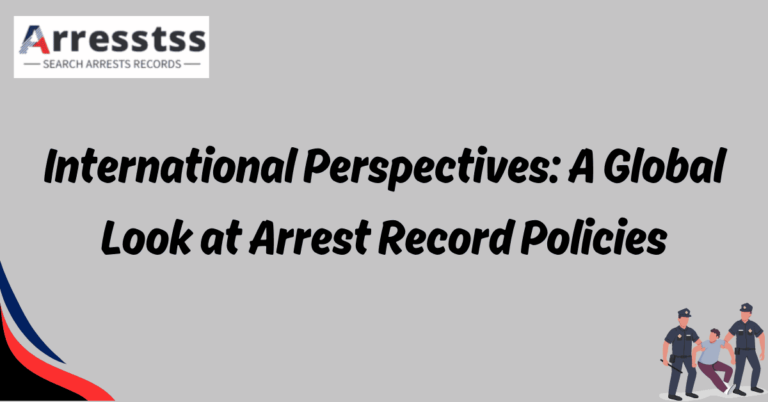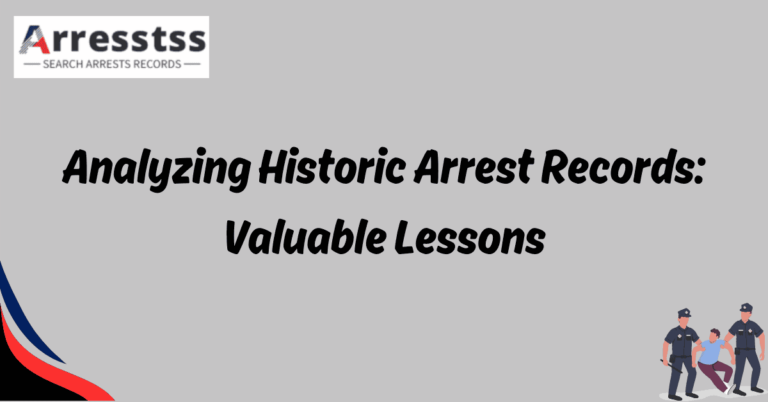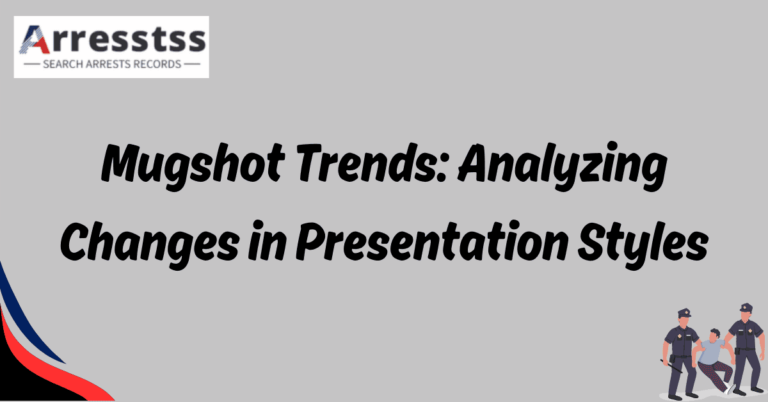Arrest Records and the Right to Be Forgotten: A Legal Analysis
In the age of digital information, the concept of the right to be forgotten has emerged as a critical topic in legal discourse, particularly concerning individuals with arrest records. This right, rooted in privacy concerns and the evolving landscape of online data retention, intersects with the fundamental principles of justice and individual autonomy. Through a nuanced legal analysis, this article delves into the complexities surrounding arrest records and the right to be forgotten, exploring the implications for individuals, law enforcement, and society at large.
Legal Framework: Arrest Records and the Right to Be Forgotten
In today’s digital age, the accessibility and permanence of information have raised important questions about privacy and personal autonomy. One area of concern is the impact of arrest records on individuals’ lives, even long after their charges have been dropped or they have been found not guilty.
The right to be forgotten, a concept rooted in personal autonomy and the ability to move on from past mistakes, has emerged as a potential solution. This legal principle asserts that individuals should have the right to request the removal of outdated or irrelevant information from search engine results and online platforms.
However, implementing the right to be forgotten is not without its challenges. The balance between the public’s right to know and an individual’s right to privacy must be carefully considered. Additionally, the legal framework surrounding arrest records and the right to be forgotten varies across jurisdictions, adding further complexity to the issue.
Consequences of Arrest Records: Personal and Professional Impact
Arrest records can have significant personal and professional consequences for individuals. Even after charges are dropped or a person is found not guilty, their arrest record may still be accessible online. This can lead to stigmatization, discrimination, and barriers to employment and housing opportunities.
By exploring the personal and professional impact of arrest records, we can better understand the urgency of addressing the right to be forgotten. It is essential to consider the long-lasting effects on individuals’ lives and the need for a fair and balanced approach that respects their privacy and right to a fresh start.
Role of Public Safety and Transparency
While the right to be forgotten aims to protect individuals’ privacy, it is crucial to acknowledge the importance of public safety and transparency. Arrest records serve as a valuable tool for maintaining public safety by providing information about individuals with a criminal history.
By examining the role of public safety and transparency, we can evaluate how the right to be forgotten can be implemented without compromising these essential aspects. Striking a balance between personal privacy and public interest is key to ensuring a fair and effective legal framework.
Case Law and Legislative Developments: A Changing Landscape
The legal landscape surrounding arrest records and the right to be forgotten is constantly evolving. Courts and legislatures around the world are grappling with this complex issue, leading to the development of case law and legislative initiatives.
By analyzing relevant case law and legislative developments, we can gain insights into the evolving legal standards and trends. Understanding the current state of the law is crucial for effectively navigating the complexities of arrest records and the right to be forgotten.
Implications and Considerations: Weighing Interests
The implementation of the right to be forgotten has far-reaching implications for individuals, society, and the free flow of information. It requires a careful balancing of competing interests, including privacy rights, public safety concerns, and the need for an open and transparent society.
By exploring the implications and considerations of implementing the right to be forgotten, we can evaluate its potential benefits and drawbacks. This analysis will contribute to a more informed and nuanced understanding of the ongoing debate surrounding arrest records and the right to be forgotten.
FAQ’s
What are arrest records?
Arrest records are official documents that detail an individual’s interactions with law enforcement. These records are created when a person is arrested, regardless of whether they are later convicted or found innocent. Arrest records typically include information such as the date and location of the arrest, the charges filed, and any accompanying documentation, such as fingerprints or photographs.
Why are arrest records important?
Arrest records play a crucial role in maintaining public safety and transparency. They provide a historical record of an individual’s involvement with law enforcement, helping authorities make informed decisions regarding criminal investigations, background checks, and the administration of justice. Additionally, arrest records serve as a safeguard against police misconduct, as they can be used to hold law enforcement accountable for their actions.
What are the consequences of having an arrest record?
Having an arrest record can have significant and long-lasting consequences for individuals, even if they were not ultimately convicted of a crime. Arrest records are often publicly available, and easily accessible through online databases and background check services. This accessibility can lead to stigmatization, discrimination, and barriers to employment, housing, education, and other opportunities.
What is the right to be forgotten?
The right to be forgotten is a legal concept that recognizes an individual’s right to request the removal of outdated or irrelevant information from search engine results and online platforms. It aims to strike a balance between the public’s right to know and an individual’s right to privacy and a fresh start. The right to be forgotten is based on the idea of personal autonomy and the ability to move on from past mistakes.
How does the right to be forgotten apply to arrest records?
The right to be forgotten can potentially apply to arrest records, allowing individuals to request the removal of their arrest records from online platforms and search engine results. However, the application of the right to be forgotten to arrest records is a complex and nuanced issue. It involves balancing the interests of individuals seeking privacy and a fresh start with the public’s right to access information and the need to maintain transparency and public safety.







